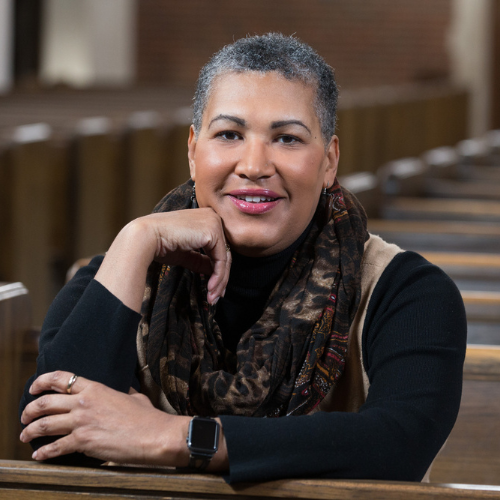Commentary on Luke 2:1-14 [15-20]
The Challenge of Familiarity
Christmas familiarity — fragrance, family, and feasts.
We know this holiday — with its expectations and its disappointments; its promise and its heritage; its memory and its mystery. And so the season of anticipation is crowded with assumption, one being the anticipation of hearing an old story retold.
This holiday familiarity is a particular problem for preachers. We must keep in mind that for some, the Christmas story has been regularly heard since childhood. And yet, these annual rehearsals have failed to reveal to contemporary audiences the jarring display of ancient culture the episode describes. Familiarity makes it difficult to convey the simple ironies, as we hold to the legends conveyed in church pageants that weave the presence of Matthew’s kings with Luke’s shepherds; gallivant the young couple through Bethlehem counting no-vacancy signs on non-existent hotels; and dismiss the political critique inherent in the writer’s historical setting. The text’s surprise is its relevance in political mayhem rather than the mere ritual of myth. Herein lies the preacher’s challenge.
Registering Discrimination
Many sermons, having considered the behind the text controversy raised by dating the census, miss the sociological and cultural insinuations scripted in the narrative. For early readers of Luke, this reference to a particular census acknowledged, not a calendar date, but the cultural discriminations. Undoubtedly, first-century hearers would notice the political implications inherent in this acknowledgement of the governor of Syria and the ruler of the Empire. The census, itself a penetrating symbol of Roman power, serves as a reminder of the subordination required of Israel as a conquered people. More than an imposed inconvenience, the census signifies the alien rule compromising fidelity to Yahweh. But Luke the historian is no less Luke the theologian.
Unlike Matthew’s gospel Luke’s gospel pauses, not over the sound-bite teachings of Jesus but, on the dramatic encounters that are had with Mary’s firstborn. The writer here rehearses the life of a historical person whose life had historical significance. Luke is not positing his narrative to provide a specific date in history, but to register the discrimination experienced by Jews under Roman rule.
Today’s sermons should similarly take advantage of the counter-cultural message of the sacred story. The Divine Son is not Augustus, but Jesus. The charity for which Augustus has been celebrated is announced as the astonishing character of Yahweh and Yahweh’s son, calling into question virtues previously attributed to the Emperor. The peace of God presupposes the peace of Rome, deeming the government’s programs of freedom, security, and welfare woefully deficient.
Locating Hospitality
Joseph and Mary, along with the others who traveled that season were not participants in an inflated economy on a shopping spree. The census accounted for the people’s wealth not for the spending power of their credit limits, but the taxing of persons and property. This return to home bears the weight of tax season, not Black Friday. And so, the inconvenience of the government is countered by the comforting hospitality of the village.
Familiarity with the traditional tales makes it hard to reconstruct the first century context. Interjecting commercial lodging practices into the ancient culture obscures the narrative parallels in the story. The young couple’s arrival in Bethlehem brings them not to a stranger’s business, but a relative’s home. To turn away a descendent of David in the city of his home would be unimaginable. Considering the importance of hospitality for traditional Middle Eastern villages invites the preacher to convey the design of homes where animals are literally brought inside in the evening. Simple village homes in Palestine would not have the luxury of storehouses (as noted in Luke 12:13-21) nor contemporary barns.
With all the visitors in town for the census, the home’s guest room would have already been occupied, and in hospitality, not banishment, the young couple was instead extended a warm place to safely spend the night. (The writer will replay this image in Luke 13:10-17, where Jesus compares healing the bent over women as an ‘untying’ on the Sabbath, just as his opponents would untie their ox or donkey from the manger in their house to take it outside and water it. Consider also the prophet’s rooftop chamber mentioned in 1 Kings 17:19.) The young couple is not abandoned and alone, but experience the joy of their firstborn in the company of family and loved ones.
Verse 6 need not suggest a 911 call while traveling an unfamiliar highway. Instead, it highlights that during the stay, the child was born. Joseph and Mary experience the wonder of new birth while among family. Though the urgency conveyed in the familiar birth myth has given us a dramatic moment, the cultural reality may indeed be closer to our own holiday gatherings — the aroma of shared meals; the attitudes of in-laws and siblings; the assembling at table in the homes of our childhood.
Additionally, this residential space brings congruence to the hospitality experienced by the shepherds, who find not the classism of a royal rejection, but a baby — wrapped simply, just as they did with their newly born — in an ordinary peasant home. The honor of the entire community is on display with the arrival of the shepherds, who no doubt feared what they would encounter on their quest to see a baby of such promise. The shepherd’s praise for the peace promised is confirmed in the hospitality on hand — not the status quo of the government nor the Emperor’s luxury, but the attention and care women would give a mother giving birth in a small village where family have gathered from afar.
Familiar anticipation paralleled with political critique and simple hospitality. We know this holiday. May those who venture to hear its familiar story, experience the astonishment of knowing its promise of joy, comfort and peace.

December 24, 2011